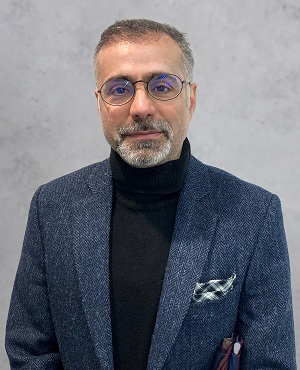
Listen to Engineering Angles, Tractebel's podcast!
In the latest episode of Engineering Angles, we caught up with Neha Bansal, Deputy General Manager of Hydropower & Water Resources in Business Development &...
Lees verderTractebel and its subsidiary company RED published a White Paper on how Small Modular Reactors (SMRs) can provide zero-emission, reliable, and sustainable energy to data centre communities to support their exponential long-term growth. SMRs will consolidate the data centre sector’s role as a cornerstone of the 4th industrial revolution and a driving force behind new energy and infrastructure-building partnerships.
Data usage and global internet traffic have experienced exponential growth since the mid-2000s, and the trend is expected to continue, and even accelerate, due to the wide adoption of Artificial Intelligence. The total global energy demand for data centres now exceeds the consumption of most economies, and they emit around 2% to 4% of global greenhouse gas emissions. To meet this demand, data centre planners must consider not only the affordability aspects but also sustainability, security of supply and social impact.
The white paper explores how Small Modular Reactors can help solve this energy quadrilemma by supplying cost-effective, clean and reliable energy while creating skilled jobs for the local communities. Compared to large nuclear reactors, SMRs’ reduced footprint and enhanced safety features make co-location with data centres possible, which in turn ensures power matching and supply security. Thanks to their flexibility, SMRs can also complement intermittent renewable energy sources to offer a comprehensive, emission-free and renewable-led solution.
Addressing the exponential growth of data centres requires a paradigm shift and a new form of energy partnership incorporating SMRs within decarbonised energy hubs. This approach could foster a long-term program of infrastructure building (and possibly hydrogen fuel supply) around future data processing campuses.
 |
“Our nuclear experts have written this thorough analysis to highlight the role that advanced nuclear technologies like SMRs and Micro Modular Reactors (MMRs) can play in meeting the growing energy demand of our modern societies. We are convinced that if data centre planners express interest in this technology, they will drive investor decisions and bolster the deployment of SMRs. They have the power to change the course of the energy market by adopting a long-term solution that can act as a catalyst for industrial clusters, and accelerate the net-zero transition.” |
| Fabio Nouchy, SMR Product Manager, Tractebel | |
 |
"At RED Engineering Design, we're proud to support the publication of this White Paper in collaboration with Tractebel. Small Modular Reactors (SMRs) for data centres offer a reliable and sustainable energy solution to meet the exponential growth of digitalisation. By integrating SMRs with data centres, we ensure power security while minimising the environmental impact of growth. This collaboration highlights the importance of advanced nuclear technologies in achieving a net-zero Carbon future. At RED, we're committed to driving towards a zero-Carbon future and are excited to contribute our expertise to this initiative." |
| Mohammad Royapoor, Head of Research and Development, RED Engineering Design |
Download the White Paper:HERE.

In the latest episode of Engineering Angles, we caught up with Neha Bansal, Deputy General Manager of Hydropower & Water Resources in Business Development &...
Lees verder
Tractebel helps ENGIE build its second large-scale battery park in Belgium, contributing to shaping a flexible, reliable and sustainable energy system in the country.
Lees verder
Our Urban teams from France and Monaco are leading the design and construction supervision of the Mediterranean Pavilion, ahead of the third United Nations Ocean...
Lees verder
Our transport infrastructure experts signed a mandate on April 25, 2025, to provide technical services on the first metro project in the Western Balkans. This is our...
Lees verder